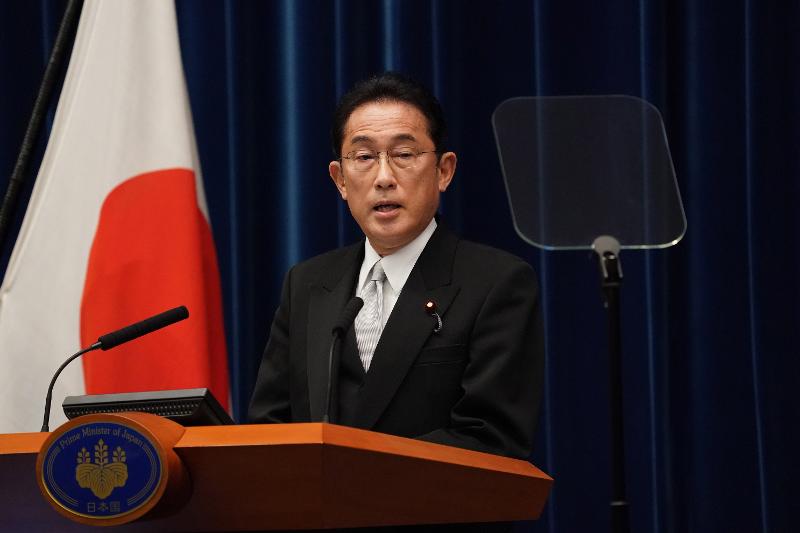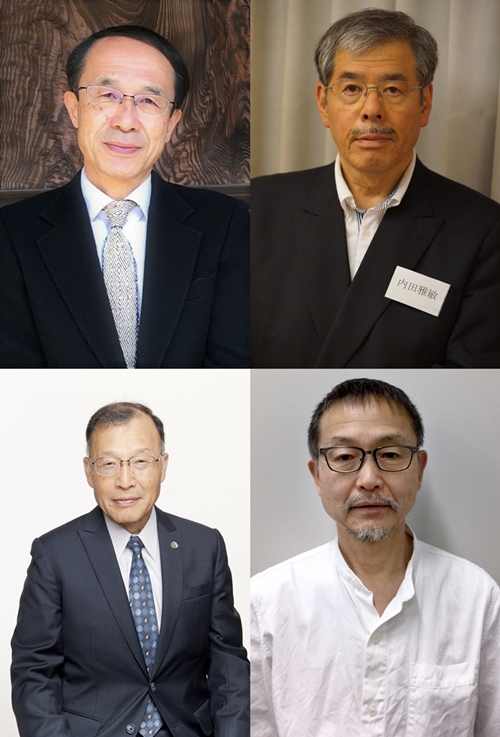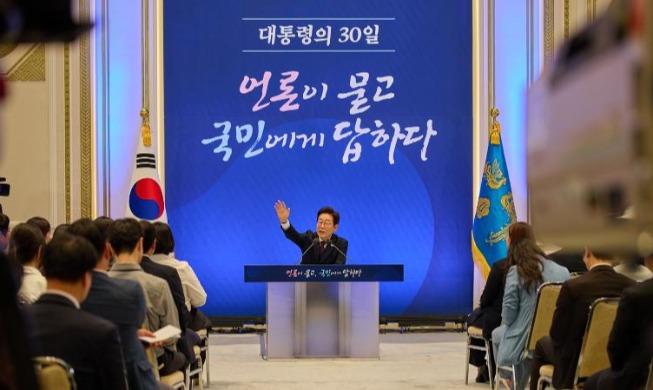
Japanese Prime Minister Fumio Kishida on Oct. 4 holds his first news conference since taking office at his official residence in Tokyo. (Yonhap News)
By Kim Eun-young and Yoon Sojung
Four Japanese intellectuals working on history-related problems between Korea and Japan have urged the new Fumio Kishida administration in Tokyo to pursue a political path different from those of its predecessors to improve bilateral ties.
In a written interview with Korea.net on Oct. 13, Yasuto Takeuchi, a researcher of modern Japanese history, said, "Proper reflection on problems of the past and the lifting of export restrictions are necessary," adding, "The search for comprehensive solutions such as a victim relief fund is necessary but must not interfere with dialogue between Japanese companies and victims of forced labor."
The scholar also criticized the previous Abe and Suga administrations, saying, "Based on historical revisionism, they intend to justify the invasions of imperial Japan and argue that Japanese colonial rule was not illegal."
"After the verdict by the Korean Supreme Court on Japan's mobilization of forced workers, Japan has taken retaliatory measures through trade restrictions on materials used to produce semiconductors and displays."
Human rights lawyer Masatoshi Uchida said, "(Prime Minister Kishida) is the person who pushed for the 2015 Korea-Japan 'comfort women' agreement as minister of foreign affairs."
"I hope that he can recall the moment when he reached the agreement and discuss this historical issue based on genuine reflection of history."
Uchida also urged the Kishida administration to "conduct projects honoring the victims and accurately describe the 'comfort women' issue in Japanese history education."
"As the perpetrating nation, Japan must acknowledge its responsibility and apologize," he added. "Reconciliatory compensation must be paid to the victims as a show of contrition."

Clockwise from left are Yasuto Takeuchi, a researcher of modern Japanese history; Masatoshi Uchida, a human rights lawyer; Hideki Yano, secretary-general of the Japan-Korea Joint Action for Legislation to Compensate Korean Victims of Forced Labor; and Hidekazu Zaima, a human rights lawyer. (Photos courtesy of interviewees)
According to a survey conducted from Oct. 11-12 by the Japanese daily Asahi Shimbun on 1,477 voters, 58% said they hope Prime Minister Kishida will not follow the same policy direction of the preceding Abe and Suga administrations, more than double the 28% in favor of maintaining the status quo.
On the survey results, Hideki Yano, secretary-general of the Japan-Korea Joint Action for Legislation to Compensate Korean Victims of Forced Labor, said, "Voices demanding a transformation in political direction are rising," adding, "The government should listen to their opinions."
Human rights lawyer Hidekazu Zaima said, "Prime Minister Kishida is a leading moderate figure within the ruling Liberal Democratic Party. He has said in the past that he values dialogue with Asian countries," adding, "So he must strive to restore bilateral relations through active dialogue with Korea."
"Our role is to spread rational views indicating Japan's post-war responsibility and raise the number of people calmly looking at the issue."
The four scholars in Japan are known as "intellectuals who take action" because of their efforts to resolve historical issues between both nations, including Japan's wartime responsibility and Tokyo's failure to admit to its historical use of forced labor and sex slaves.
eykim86@korea.kr
